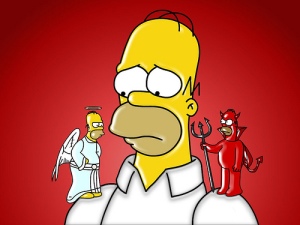who let themselves be fucked in the ass by saintly motorcyclists
Ginsberg’s decision to use the image of a motorcyclist here could be due to it being one associated with hyper masculinity, the motorcyclist is an iconic American rebel, he is associated with freedom and being on road. Heterosexuality is fundamental to the construct of masculinity and patriarchal power structures, in this case, homosexuality threatens social constructs of masculinity as it opposes the ideal man in American society as well as the nature of homosexual pleasure, which Ginsberg explicitly describes, itself being a form of gender and sexual deviance. By using the image of the motorcyclist, Ginsberg is breaking down assumptions and social expectations of masculinity. Ginsberg successfully illustrates how homosexuality problematizes hegemonic masculinity in the U.S, especially in the 50s, as it exposes the fragility of the unattainable social expectations of manhood.



